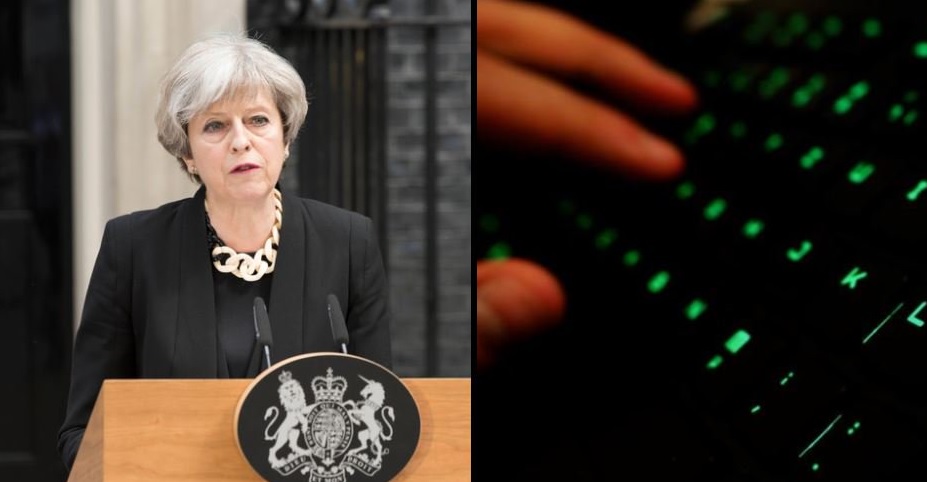Countering Violent Online Political Extremism
Newsletter
VOX-Pol Newsletter 4(3) August 2017
August 10, 2017Welcome to Vol. 4 Iss. 3 of the VOX-Pol Newsletter. If you have colleagues or friends who may be interested in the content of our newsletter, or any events or research carried out by VOX-Pol, please forward this to them and encourage them to subscribe via our website. Follow us on Twitter @VOX_Pol for live updates and releases. ...
News
VOX-Pol Coordinator Contributes to Bangkok Conference
July 31, 2017VOX-Pol’s Coordinator, Prof. Maura Conway, was a participant in Deakin University‘s conference on ‘Addressing the New Landscape of Terrorism: Actionable Responses,’ which took place in Bangkok from 24 – 28 July, 2017. The conference brought together academics, CVE practitioners, policymakers, law enforcement, and others to discuss a range of issues in contemporary terrorism, with a ...
Blog
Children are Being Used as Easy Weapons of Propaganda by Terrorist Organisations
July 19, 2017By Amy-Louise Watkin and Sean Looney To involve children in terrorism is an unthinkable prospect. And yet they have become not only targets of violence, but are being used to promote radicalised causes too. This is not just about European or American children being victims of attacks by the so-called Islamic State (IS). Young people who are ...
Blog
Reflections: Terrorism and Social Media Conference 2017
July 12, 2017By Samantha North On 27 and 28 June, in a sleepy Welsh city by the sea, a group of social media and terrorism researchers came together to discuss the latest challenges in the field. I learned a lot, met people doing admirable work and came away inspired with ideas to shape my own research in the ...
Blog
The UK’s plan to deny terrorists ‘safe spaces’ online would make us all less safe in the long run
June 21, 2017By Molly Land In the wake of the recent attacks in Manchester and London, British Prime Minister Theresa May has called on social media companies to eliminate “safe spaces” online for extremist ideology. Despite losing the majority in the recent election, she is moving forward with plans to regulate online communications, including in cooperation with ...
Blog
Despite short-term increases in arrests, counter-extremism powers need to do more to tackle the far-right
April 26, 2017By Bharath Ganesh In early March, the Home Office published new counter-terrorism statistics that indicated a significant increase in the arrest of ‘white’ extremists. Tabloids in the UK, including The Daily Mail, ran triumphant headlines claiming a crackdown on far-right extremism. Unfortunately, the data released by the Home Office does not support any such assertion. The ...
Blog
Terrorist Use of the Internet by the Numbers: Part III – Research and Policy Implications
April 5, 2017This post is Part 3 of 3; Part I is HERE and Part II HERE. Also, a PDF combining all three posts is available HERE Collectively, the results from the open source data analysis presented in Part I and the findings from the police data contained in Post II highlight the need to focus upon ...
Blog
Paths to Radicalism and Extremism
March 1, 2017This Blog post is a product of the ESRC-funded Youth Extremisms Research Seminar Series. By Prof. Hilary Pilkington Following significant electoral successes for populist radical right parties and several instances of extraordinary extremist violence, perpetrated by both jihadist and extreme right actors, the attention of scholars, journalists and politicians has understandably focussed upon extremist and radical growth ...
Blog
Measuring the impact of your online counter or alternative narrative campaign message
February 15, 2017The Radicalisation Awareness Network’s (RAN) Communications & Narratives’ Working Group meeting on 13 and 14 February, 2017 in Brussels focused on how to measure the impact of an online counter or alternative narrative message; the following post is adapted from the ex-ante paper circulated prior to the meeting, which drew from the Institute for Strategic ...
Blog
Interpreting Data About Islamic State Online
January 18, 2017By Ali Fisher Challenging ISIS has little to do with their number of followers, or the decline in their number of messages. This type of tactical-level data can indicate success, but genuine impact can only occur with robust interpretation of data at the strategic level. Recent studies have been used to claim success in reducing the number of followers ...









